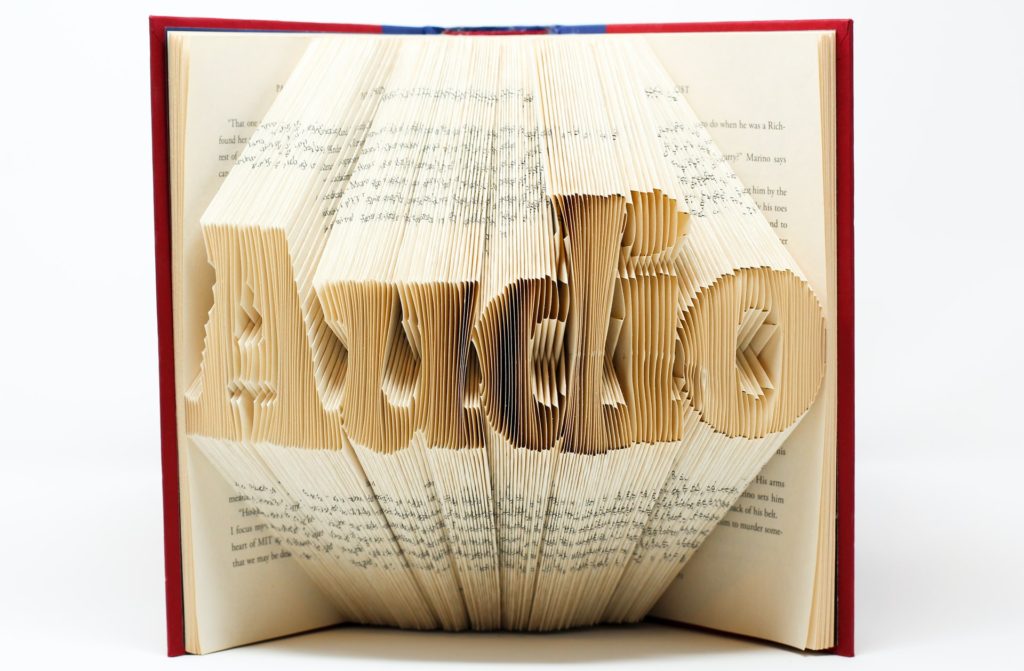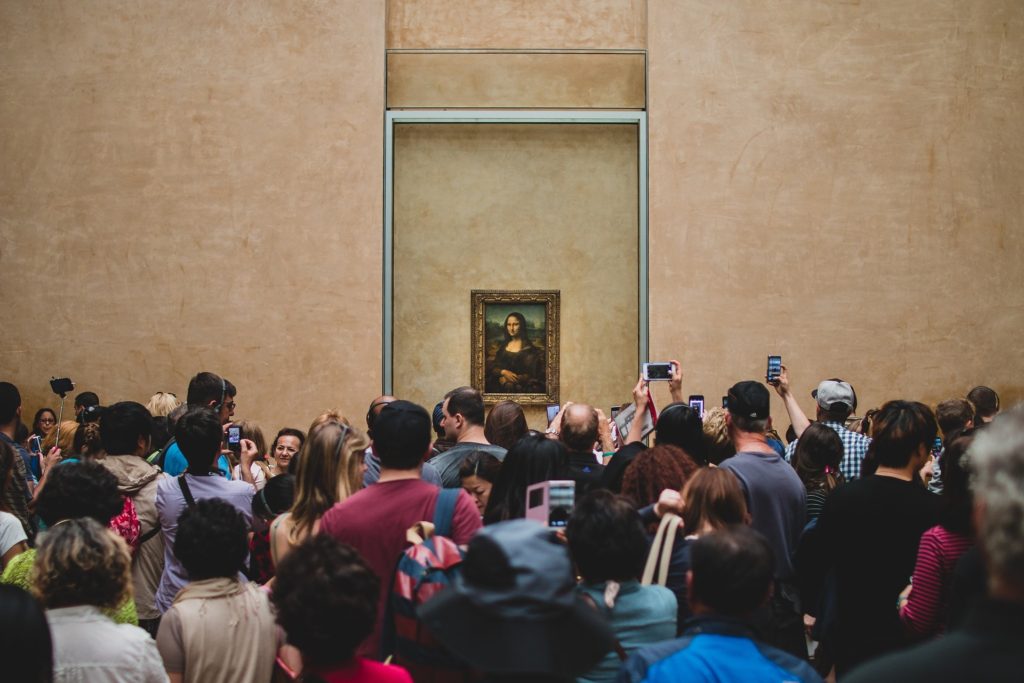November 23, 2020
Literature in the Audiovisual Era
Literature in the audiovisual era. Can it survive, and how? I’m bouncing ideas off Igor da Silva Livramento, friend and fellow writer, academic, and creative-writing advisor. He’s also a composer, music theorist, and producer. You can find him on LinkedIn, and also take a look at his blog and his page on Bandcamp.
Chris: The idea behind this post began as a series of what-if thoughts and musings. We were talking about a generational disconnect in terms of readers’ ability to fill in the gaps.
Igor: Younger-generation writers grew up with (anglophone) young-adult fantasy and science fiction. Literally everything is spoon-fed to them, all details, all plot points, everything. I don’t like that. I wholeheartedly believe in strategic holes and unexplainables.
Chris: Man, I write about this on the blog all the time. Off the top of my head, I’d mention my posts on over-explaining, narrative exposition, and of course the more theoretical on Keats’s negative capability.
Igor: Suggesting is much more powerful than showing, because the imagination is boundless, thus filling the vacuum with something truly intense. This is the tactic I’ve found for my literature to survive in a predominantly audiovisual era.

Literature in the Audiovisual Era: on the Illusion of Everything
Chris: How do you think we should go about establishing what the audiovisual era is about? That is, as opposed to literature?
Igor: Audiovisual gives (the illusion of) everything, the two main cognitive senses are used to exhaustion (rendering the rest of them to a primeval state which I despise).
And we know situations are not about plain senses, but meaningful ones. So, let’s immerse the reader in that experience and let their mind roam free. It will do the job much better than expected.
Now, how to immerse is the thing I can’t quite yet put my finger on, but it has to do with which details are provided and which are suggested. Suggesting is not the same as just leaving an empty space, it is a strategic hole to step into.
Maybe it has some sort of logic, like syllogisms go from larger premise to smaller premise to conclusion, leave one obvious step empty, but hint at its absence, someway indicate which specific step is missing.
Immersive Literature in the Audiovisual Era
Chris: I’m sure there are many ways (and many good ways), and probably it boils down to personal style and, partly, genre/mode.
Personally, I use a lot of introspection, abstraction, foreshadowing and symbolism. Oh, and plenty of manipulation: I like showing the reader how the system works, and then I change the rules.
What most authors (especially in the audiovisual era, perhaps) do is to focus their manipulation on plot: Think of all the silly crime fiction that shows you impossibly convoluted schemes and, likely, ends up introducing the missing pieces a couple of chapters before the end — in a Deus Ex Machina way.
My manipulation techniques are about how emotions are felt (perhaps my term affect might be more apt, in a more general way). I don’t know if you’ve read any Lionel Shriver, but she’s a master of that. We Need to Talk about Kevin, So much for That, and to some extent even Big Brother (which is a rather failed attempt, though), are all structured in a way that makes the reader’s emotional balance toward a character change a dozen times through the book. Perhaps the reason is that, as in reality, people are complex beings.
Of course, all of the above also depend on the reader. The more intelligent and experienced the reader, the more rewarding the experience. Otherwise, it’d be better to stick to Harlequin romances.
When it comes to literature and the audiovisual era, how do you think the emergence of new forms of “writing” (quotation marks necessary), such as social-media posts, Twitter, and whatnot has affected the way we read and write?

New Forms of Writing
Igor: For all effects, I think it has ruined our attention span and our cognition. Think about how every idiot thinks they’re entitled to “having an opinion” about any topic, even if they say nothing relevant at all about it. That’s Facebook for ya. Texts upon texts that lack any significant language use.
Chris: Yes! Precisely this! I once read an interesting article on not being entitled to your opinion. The author aptly described how people confuse knowledge with opinion, which is exactly what you see in places like Facebook. I guess Twitter is even worse because of length constraints.
Literature in the Audiovisual Era of 280 Key Presses
Igor: You could call Twitter posts info pills. They’re so short they’re no better than Tiktok (except you can choose your content, but you may get just as addicted and distracted).
As far as I understand the Brazilian side of it, from what my friends tell me, there’s some younger academics there, trying to navigate their way to the scholarship and whatnot. Most of them writing in personal blogs. But this is also not the smartest option, for they spread their energy far and wide, rendering results shallow.
Connections, sure. Discussions, no doubt. But how deep can you go on 280 key presses? I had difficulty establishing the emotional impact of a scene just under 300 words, let alone that many characters with spaces!
The Imitation of Experience
Chris: As I’ve mentioned before, I think Twitter is a particularly bad place for writers, because of these constraints. It deliberately promotes frivolity and emotion-based (rather than argument-based) responses. It’s like an echo chamber of mediocrity.
And don’t get me started with what I’d term the imitation of experience. It’s not about having an experience, but about pretending that you do. It’s the very embodiment of the philosophical zombie concept. Like, if you notice in concerts or museums, people don’t care about having the experience, but about taking photos of it that prove… what exactly? That they had the experience that they missed on for proving they had it? It’s a paradoxical form of madness.
Igor: You’re spot-on on this one. I remember going to hard rock live gigs and people were taking pics while I was breaking my neck headbanging as hard as I could. Far more cathartic than a hashtag on my timeline. I have memories of those days, that’s why they matter to me. Even if I can’t prove it to you, I was there.
Narratives Make Sense of Things
While I’m on this: since 9/11, intensified by social media, we’ve become witnesses to/of our own lives, providing evidence of where we were at all times, because everyone is a suspect, no one expects actions in good faith. Life became a thriller plot. Your neighbor could be a terrorist in disguise, this narrative tells us.
You see, we need narratives to make sense of things, because meaning is an aspect of language. But this prevailing suspicion over everyone, it kills me. I’m eccentric, like most artists!
I mean, etymologically: My center is ex, outside, in my art, in the things I think and feel and do, obviously it too is in the world that stimulates my creativity so much. Now I can’t do an intervention, an interactive physical form of art, because “terrorism”. Goodness. We should stop watching the news altogether, blood drips from the screen if I turn it on!

Attention Span Issues
Chris: What do you make of the short attention span people seem to suffer from nowadays? I’d say one of the problems with literature in the audiovisual era is that it has to fight against this. I mean, how on earth do you convince someone to read a novel when they’re used to Instagram and TikTok?
Igor: The corrosion of our attention span has to be defeated. You can’t read without it, reading takes time. And I mean it in every sense: A book may arrive late at your hands, it took its own time. Language moves at geological speeds. And we are linguistic beings. We must appreciate that. Modernity is not the freeing from myths, but rather the steadfast belief in its own foundational myths, speed is the chief in this case. Let’s not forget speed kills.
Couple that with the Netflixation of culture, which renders everything as an audiovisual-centric series, and you’ve got yourself a recipe more dangerous than a bomb.
I had to quit Facebook before I could read fiction (and enjoy it!) again. I was so hooked to just scrolling to pass the time, that the slow, steady crescendo of a printed page drowned me in boredom. But now I’ve recovered. If it sounds like a disease, that’s an apt comparison, it works a lot like an addiction.
Chris: Actually, many studies have linked the way social media works to addiction. As in, their structure is supposed to make them addictive.
In Lieu of an Epilogue: The Future of Literature
So, what’s the future of literature and reading? Hopeful or not?
Igor: It seems to me there’s no convincing to read. But don’t call me a fatalist! Literature has uniquenesses no audiovisual narrative can substitute for, our strength lies in these.
I’ve met some younger readers and they eat a book a day. Appreciation for details? No. Looking away from the page with a soaring imagination? Not at all. But in the end of the day, they’re reading, and that’s better than no reading. Call me a hopefool if you will!
I don't show you ads or newsletter pop-ups; everything is offered for free. Wanna help support a human internet?
